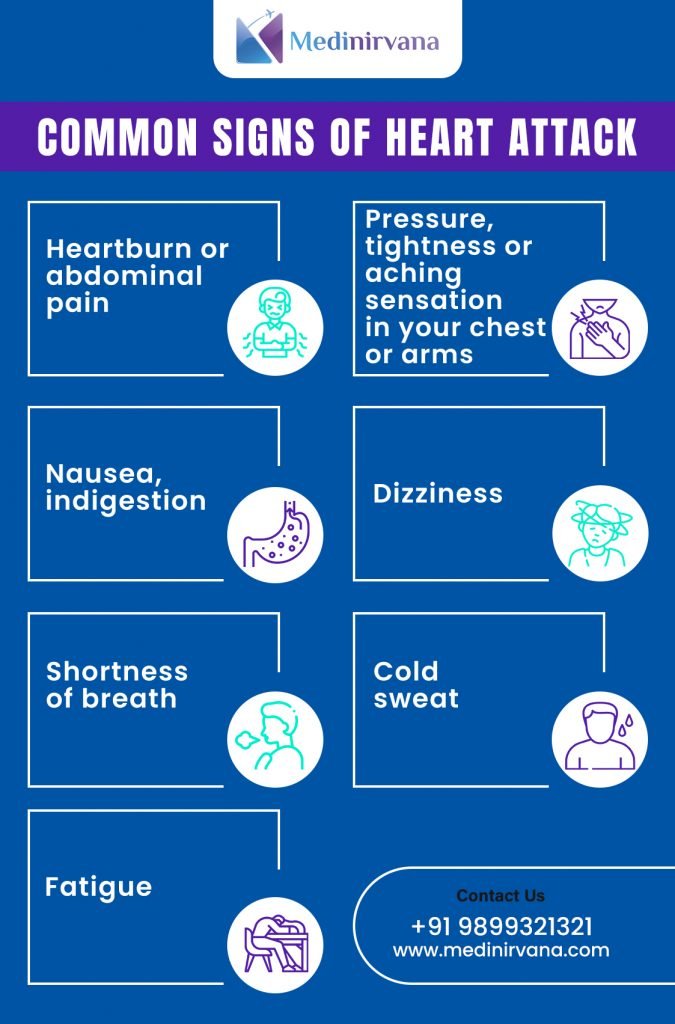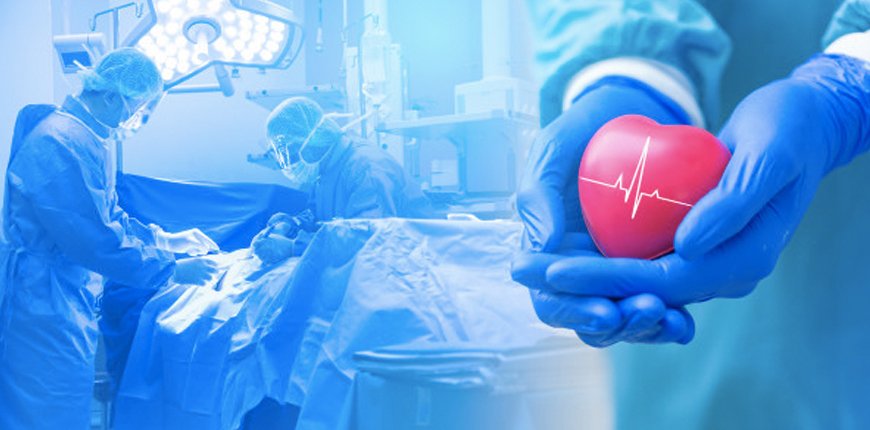Open Heart Surgery is a boon to people who have heart blockages and other treatments and medicines don’t respond well. It has invariably increased the survival rate of such patients. Statistical findings by the National Institute for Health and Clinical Excellence (NICE) suggest survival rates after 1 year of open heart surgery is about 96-97%. It involves opening of the chest after which the complications relating to the heart are resolved by different techniques.
According to the National Institute of Health (NIH), Coronary artery bypass grafting (CABG) is the most common type of heart surgery done on adults where an artery or a vein from another part of the body is obtained and grafted allowing free flow of blood through the grafted artery. Other open heart surgeries performed are repair of the heart valves in the heart’s chambers, heart transplant etc.
In the past few years, India has advanced in heart surgeries and is most preferred for a heart surgery treatment because of its top class hospitality and treatment standards. In the covid situation, medical staff, specialists and surgeons in India are ensuring high quality and standardized patient care by adopting novel and tech-savvy methodologies like contact free continuous monitoring (CFCM) and many more.
Table of Contents
Feel free to skip ahead if one topic catches your eye:
- When is open-heart surgery needed?
- How to prepare yourself for heart bypass surgery?
- What is the procedure?
- Quality of life after Open Heart Surgery?
- Open Heart Surgery in India
Take Away
- When is open-heart surgery needed?
An open heart surgery is preferred and done in the following conditions as below.
- A coronary heart condition is when the blood vessels that supply blood to the heart muscles are narrowed. This stenosis hardens the arteries due to the fat decomposition occurring on the inner walls of the arteries. The hardening causes blockage of blood vessels leading to chronic chest pain and heart attack. People with blockages of the arteries, veins, can consider CABG.
- Sometimes, the severity of the heart condition or heart failure may require its replacement. Heart transplantation can be done to replace a diseased or damaged heart with the help of a donor heart.
- Repair of the damaged or atypical areas of the heart that hamper a healthy heart functioning is performed in some conditions.
- Any blockage or damage in the heart valves may require a replacement or repair.
- Normally, the heart beats at an optimal rate of 60-100 beats per minute. Otherwise, medical device implantation may be needed to control abnormal heart rhythms.
- Congenital heart defects in children may also need a heart surgery depending on the conditions.

- How to prepare yourself for heart bypass surgery?
If you are planning for a heart surgery in India, You need to understand the pre-surgery procedures that your specialist will guide with certain guidelines prior to the surgery. They are :
- One has to undergo tests like electrocardiogram (ECG), Blood tests, Chest X-ray, etc.
- Inform your doctor about the drugs you are taking, over the counter medicines, supplements, herbs etc.
- Your doctor will advise you to stop taking blood thinning medications such as ibuprofen, aspirin, naproxen.
- You have to quit smoking and alcohol consumption at least two weeks before the surgery.
- Psychological and mental preparedness too is required while you undergo the surgery. Talk to your doctor, get to know the procedure for further clarity and other details of the procedure.
- What is the procedure?
After the initial procedures, the anesthetists will administer general anesthesia that will keep you away from pain and put you to sleep during the surgery. The Surgery involves a cardiothoracic surgeon along with other doctors and nurses. The duration of the procedure depends on the type of the heart surgery and individual complications. In general as per NIH, CABG procedure takes about 3-6 hours. A traditional Open heart surgery will have the following steps:
- Firstly, a breathing tube is placed in your lungs from your throat and connected to a ventilator that would assist your breath during the surgery.
- The surgeon will then make an incision of about 6 to 8 inches that will cut down your chest wall, breast bone, open the ribcage to reach your heart.
- While you receive medicines to keep your blood away from clotting, the heart is connected to a heart-lung bypass machine that will take care of the heart’s pumping activity, till the needful surgery of the heart is done.
- This machine’s activity is similar to that of the heart i.e. exchange of deoxygenated blood to oxygenated blood and pumping of oxygen rich blood into the body.
- The surgeon then works on the non functional heart and restores the blood flow to your heart after the surgery is accomplished.
- Once the heart functions are restored, the surgeon will disconnect the heart-lung bypass machine and reconnect it with the repaired heart.
- Patients will be administered with medicines that allow clotting of blood again to ensure the healing process is underway.
- The breastbone is wired strongly and this wire connection will be permanently fixed within.
- The surgeon then uses stitches and staples to close the skin connectivities.
- A tube from the chest region will be left to help drain the fluids around the heart.
- The breathing tube will be removed once you start breathing without it.
There are different surgical approaches of open heart surgeries like Pump off heart surgery where the surgeon will work on your heart without any bypass machine. Instead will use a device to steady the heart.
Even minimally invasive heart surgery is done where the surgeon makes small incisions of about 3-4 inches, inserts a tool with a camera into your heart that would help him/her see within while working on it. Certain types of minimally invasive surgery, a heart-lung bypass machine is used in this procedure.
- Quality of life after Open Heart Surgery?
Post surgery you will be spending your initial recovery days in the hospital, a day or two will be in an ICU after which you will be shifted to a different care room. You may have to spend a few days in the hospital where your heart rate, breathing, infections if any, external and internal healing of the incision sites are monitored regularly. Discharge from the hospital follows a set recovery regulations like how to take care of your healing incisions, medicines, diet and routine changes etc. Coping up after the surgery depends on the type of the surgery and also the individual medical conditions. However, the overall recovery time takes about 6 to 12 weeks.
In India, after care of an open heart surgery includes regular checkups with your doctor. Diet and lifestyle changes are essential along with medicines that will assist quick recovery. You may be advised for a cardiac rehabilitation program by your doctor that includes regular counseling, exercise and training to help complete healing.
A reduction in symptoms such as chronic chest pain, breathlessness is observed post surgery. Risks of heart attack are also averted, improving one’s natural life.
- Open Heart Surgery in India
It was in the year 1961 when the first open heart surgery was performed in India and from then there is no looking back for heart surgery in India. Added to the top class infrastructure and advanced technology, India has some of the world’s well-known hospitals, doctors, surgeons, support staff, who endure excellent services and compassionate care. A few of it’s features as to why India stands apart in hospitality and high quality patient care is enlisted below.
- India’s success rate of an open heart surgery is nearly 98%. This high success rate is due to a team of well renowned,highly skilled and experienced doctors, surgeons, cardiologists. They make sure to find holistic solutions for the most critical and crucial cases.
- India has been globally accredited for its best hospitality and infrastructure. Advanced health care and services are well structured and supported by extensive infrastructure.
- Successful multi organ transplantation is done at most of the world class hospitals in India by best surgeons. Be it heart transplantation or kidney transplant, success rates of transplant procedures too are huge with patients from different countries. Every criticality of a healthy transplant procedure is taken care of.
- Advanced prognosis and diagnostic techniques used by the hospitals in India are latest and minimally invasive. Advanced technologies and methods are adopted in the treatment of perilous conditions such as cancer, etc.
- Patients with life threatening diseases may need various therapeutic requirements. Health professionals in India provide comprehensive care, therapy and medical support for the most precarious cases.
- Indian government has made provisions for easy and quick assistance for foreign travellers at every stage of their medical trip from visa, complete documentation to travel and accommodation support.
- India endorses new normal safety norms that are to be followed in covid situations. Hygiene standards and social distancing are immense. Doctors use technology driven safety standards ensuring minimum contact with the patients and separate sections for non-covid patients.
- Every patient is important for us. We, as health care professionals, make sure that we maintain privacy with the medical intricacies and do not disclose patients’ records, details without their consent.
- English is a universally spoken language and is the medium of communication of the medical fraternity here in India. This creates no barriers to ineffective treatment. Language translators here can guide the non-english speaking patients as well.
Diagnosis and treatment in India has significantly improved one’s life expectancy and quality. Dealing with a health condition in itself is worrying. If planning for treatment in India, Medinirvana will arrange everything for you so that you don’t have to worry more during your difficult time because your health is our priority.
Take Away
Open heart surgery can be daunting for a few, but its benefits of relieving from a heart attack and improving the health status makes this surgery as relaxed as possible. This surgery involves highly skilled professionals whose experienced hands will ensure a successful surgery through precise treatment and prudent guidance. A long-term benefit and recovery depend on the overall health and condition. Post recovery, one should find improvement in symptoms such as chest pain, breathlessness etc.
Heart surgery is known to increase the likelihood of one’s qualitative life span. The high success rate of open-heart surgery in India and efficient patient care has made it one of the most preferred countries for this very treatment. For patients from across the globe, we at Medinirvana will take care of all the basic necessities like medical visa, travel assistance, accommodation support, doctor and hospital appointments etc to make your stay and treatment a pleasant and safe experience even in these bleak covid times.









Leave a Reply